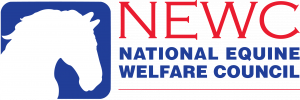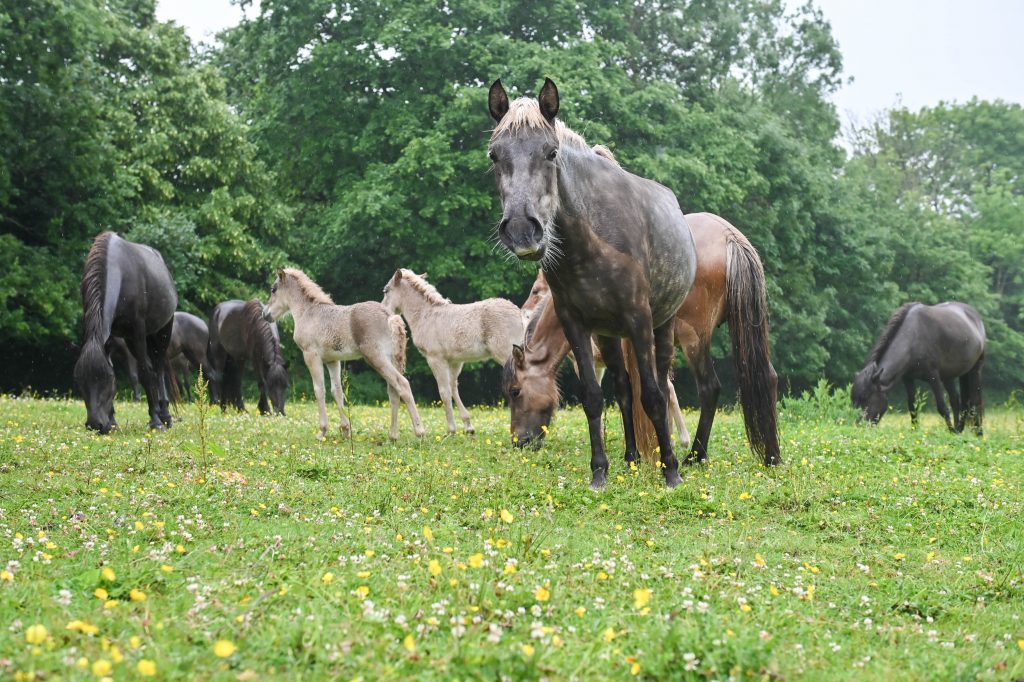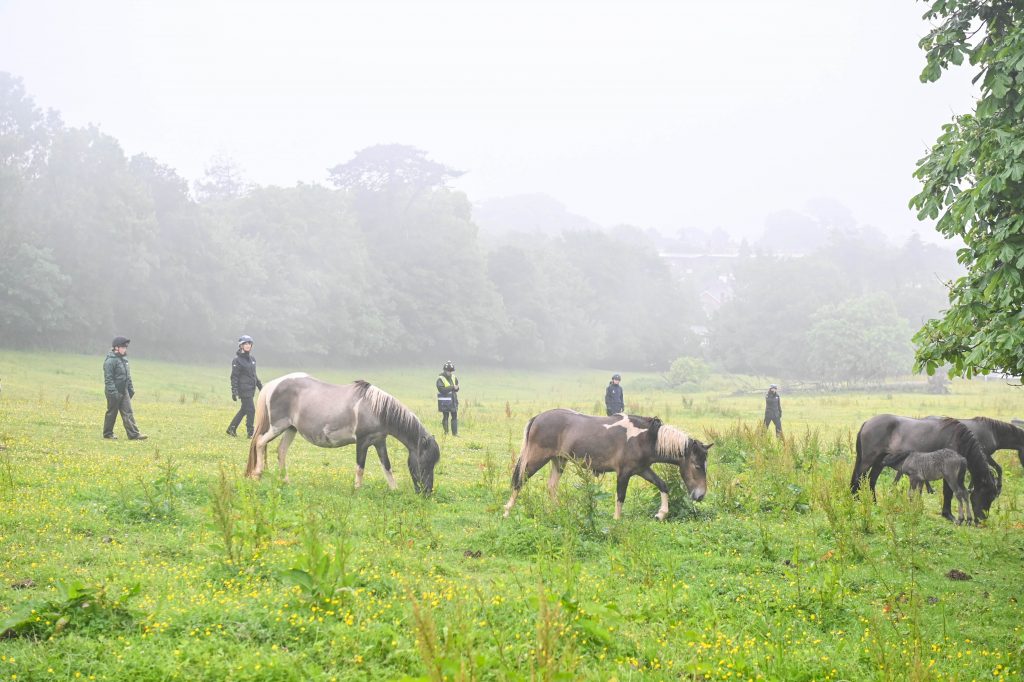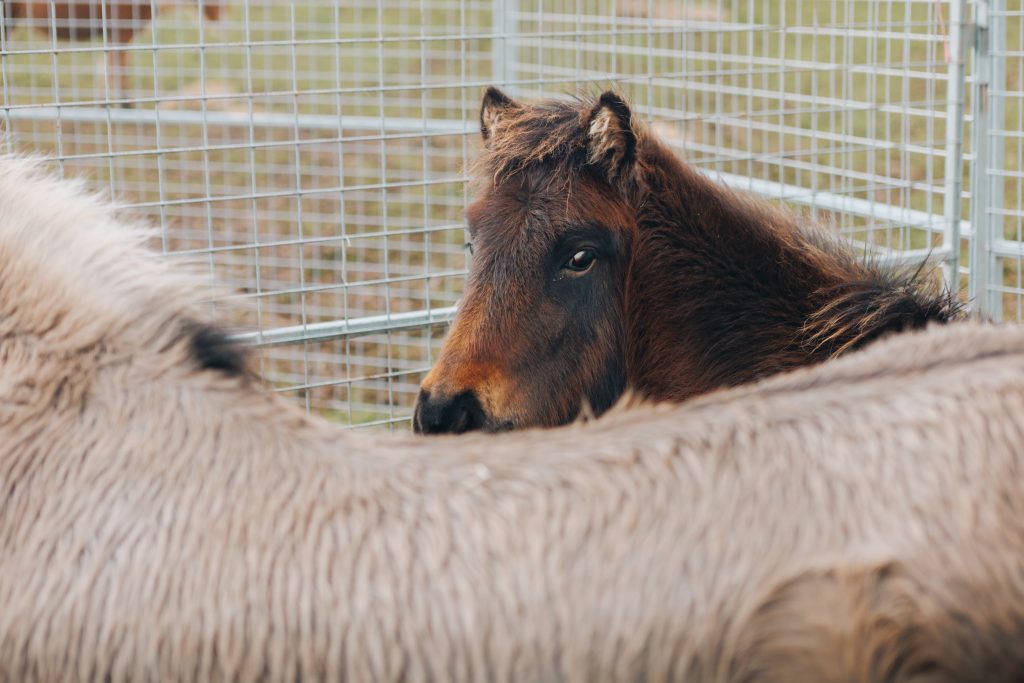

Concerns were raised by members of the public in May 2024, which prompted action from The Mare and Foal Sanctuary and World Horse Welfare. Welfare officers discovered several semi-feral herds of Icelandic horses. There was unmanaged breeding, with pregnant mares living alongside fighting colts and stallions. Some were found with life-threatening injuries. High worm burdens, especially among young horses, posed a major concern, with some random samples showing levels in the thousands. Excessive worms can lead to malnutrition, poor growth, colic, and other health problems, making it crucial to manage parasite control to keep the horses healthy and thriving.
All of the organisations involved are proud members of the National Equine Welfare Council (NEWC). This operation exemplifies how NEWC members work together to achieve the best possible welfare outcomes for equines in need.
The equine charities worked together with the RSPCA across several sites in Devon. As the owner cooperated, horses were signed over in stages over several months to the three charities.



Two additional charities, The Donkey Sanctuary and Redwings Horse Sanctuary, supported the operation with extra transport, equipment and expertise. Blue Cross also stepped in at the conclusion of the case with an offer to rehome some of the horses. The entire process was a vet-led, multi-agency effort adhering to strict codes of practice upheld by all partners. Injured horses and those deemed most at risk by the vets were removed first, followed by mares and foals in need of specialist care, then stallions. Healthy mares and foals were taken last. By the end of summer 2025, all horses had been safely removed.
Throughout, the focus remained on achieving the best possible welfare outcomes for the equines, demonstrating how teamwork and dedication can make a real difference in safeguarding their well-being. The charities have united in a message encouraging all equine owners who may be struggling to come forward and seek help.
Leah Brock, Senior Field Officer at The Mare and Foal Sanctuary, described the operation as a true achievement of collective effort. “I am deeply relieved that all horses involved in this case have now been safely removed” she said. “It has been truly humbling to witness the way each charity stepped forward without hesitation, offering their time, resources, and expertise to ensure these equines received the care they needed. The commitment shown to alleviating potential suffering has been nothing short of inspiring. This operation demanded significant manpower and perseverance, often in challenging weather conditions. I am incredibly proud of the role we’ve played in bringing this case to a positive conclusion.”
World Horse Welfare’s Deputy Chief Field Officer Jon Phipps said: “I’m delighted that by working together in this way, we’ve managed to safeguard the future of these lovely horses. We had major concerns for their welfare, and without rapid intervention, an already unstable situation was in danger of spiralling totally out of control. World Horse Welfare have taken in a large number of the horses across two of our rescue and rehoming centres and the teams have been very impressed by the way they have taken to the rehabilitation process on our farms. The resilience, friendliness, and quick learning they’re already demonstrating, having arrived pretty much unhandled, is a real tribute to the Icelandic breed.”
RSPCA Inspector Sarah Morris, who led for the animal welfare charity, said: “This multi-agency approach demonstrated what can be achieved when charities collaborate towards common goals. Each charity contributed specialist skills and knowledge, which allowed us to support the horses and the owner. We encourage the public to work with us, follow guidance, and correctly manage the welfare of their animals, and reach out for help when needed. I cannot praise enough the work of the equine charities involved in this operation; what we achieved was truly amazing.”
Hannah Bryer, Head of Welfare at The Donkey Sanctuary, said: "We were happy to be able to assist in this operation and help play a vital part in a successful welfare outcome for this large group of equines. Whilst there were no donkeys or mules involved in this case, one of our Donkey Welfare Advisers and our experienced lorry drivers were able to assist with the planning, loading and transport of some of these horses, helping to reduce risks and ensure they reached their new destinations safely."
This case is a powerful example of the collaboration that sits at the heart of NEWC. Through shared expertise, coordinated response, and mutual support, NEWC members continue to demonstrate the impact of working together for the welfare of equines across the UK.
